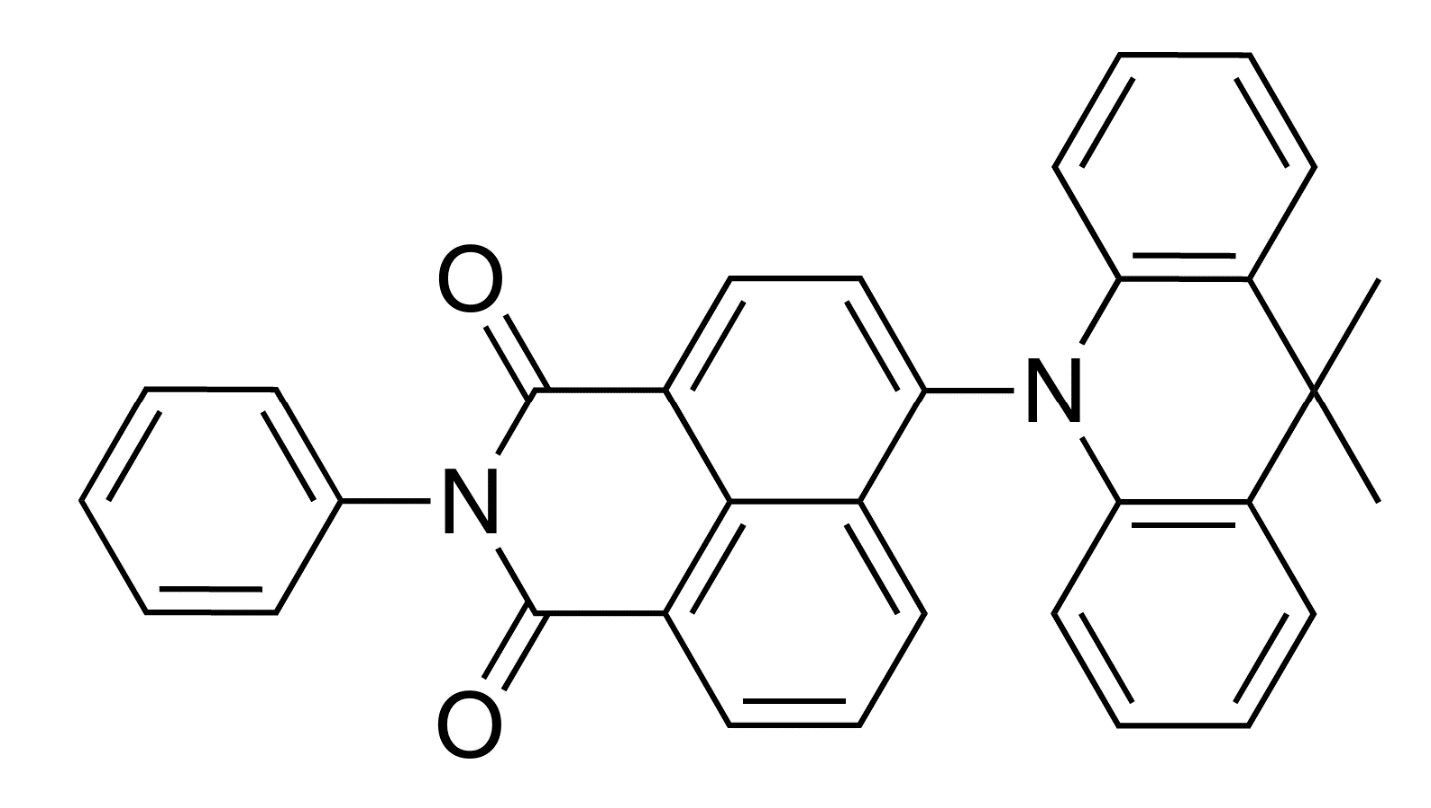6AcBIQ
Product Description
6AcBIQ, scientifically named 6-(9,9-Dimethylacridin-10(9H)-yl)-2-phenyl-1H-benzo[de]isoquinoline-1,3(2H)-dione, is a carefully crafted organic compound that combines the functionalities of benzo[de]isoquinoline and dimethylacridinyl groups. This unique molecular composition endows 6AcBIQ with exceptional electronic and optical properties, positioning it as a valuable asset in the domain of organic electronics. Its structure is engineered to promote efficient charge transport, a key requirement for advancing the performance of electronic devices such as OLEDs (Organic Light Emitting Diodes) and solar cells. Furthermore, 6AcBIQ displays commendable thermal stability and solubility, further broadening its applicability across various technological applications.
Application
Within the sphere of organic electronics, 6AcBIQ serves a pivotal role in the advancement of OLED technology and photovoltaic cell performance. Its molecular design inherently fosters efficient charge transport, a critical determinant in achieving superior device efficiencies and prolonged operational lifespans. Moreover, the thermal stability of 6AcBIQ accommodates its deployment in high-temperature operational scenarios, extending its utility in the creation of resilient electronic components. Its solubility ensures facile integration into a variety of electronic materials, underscoring its versatility in electronic device manufacturing.
Articles:
- An unsymmetrical thermally activated delayed fluorescence emitter enables orange-red electroluminescence with 31.7% external quantum efficiency
Publication Date: 09 Jun 2021
Xuan Zeng, Yu-Hsin Huang, Shaolong Gong, Pan Li, Wei-Kai Lee, Xiao Xiao, Yu Zhang, Cheng Zhong, Chung-Chih Wu and Chuluo Yang
https://doi.org/10.1039/D1MH00613D
- Benzoisoquinoline-1,3-dione acceptor based red thermally activated delayed fluorescent emitters
Publication Date: Available online 20 May 2017
Ju Hui Yun, Jun Yeob Lee
https://doi.org/10.1016/j.dyepig.2017.05.036
- Effects of the relative position and number of donors and acceptors on the properties of TADF materials
Publication Date: 25 Jun 2020
Feng-Ming Xie, Jing-Xiong Zhou, Yan-Qing Li and Jian-Xin Tang
